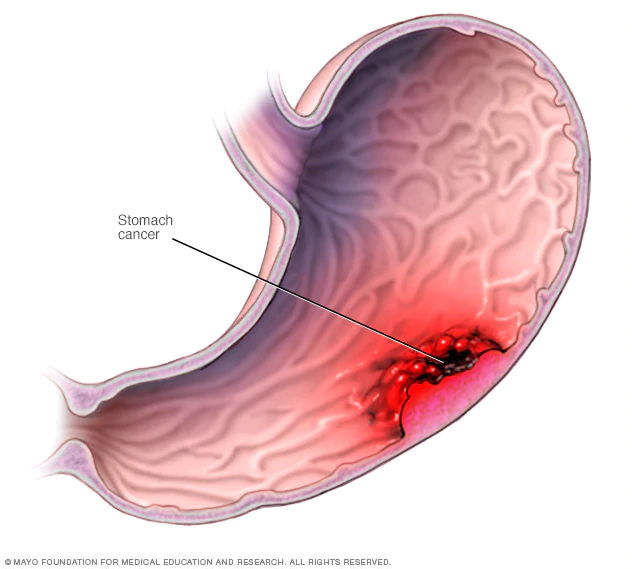Stomach Cancer Treatment in Iran
Search and Compare the Best Clinics and Doctors at the Lowest Prices for Stomach Cancer Treatment in Iran

Find the best clinics for Stomach Cancer Treatment in Iran
No clinics available
Ukraine offers the best prices Worldwide
Price: $ 2,487

- Home
- Iran
WHY US?
At Medijump, we're making medical easy. You can search, compare, discuss, and book your medical all in one place. We open the door to the best medical providers worldwide, saving you time and energy along the way, and it's all for FREE, no hidden fees, and no price markups guaranteed. So what are you waiting for?

Free

Best Price

Widest Selection

Risk-Free
What you need to know about Stomach Cancer Treatment in Iran

If you have been diagnosed with stomach cancer, your doctor will discuss your treatment options with you. Your treatment options depend on several factors, including your overall health, the stage of your cancer, your age, and your personal preference. Stomach cancer may be treated with surgery, chemotherapy, radiation therapy, targeted therapy, or immunotherapy.
What does a Stomach Cancer Treatment Procedure Involve?
Surgery for stomach cancer is performed to remove all of the stomach cancer and some of the surrounding healthy tissue, your doctor may remove early-stage tumors from the lining of your stomach, remove a portion of your stomach (subtotal gastrectomy), remove your entire stomach (total gastrectomy), and remove lymph nodes to look for cancer. All of these surgeries are performed under general anesthetic. With chemotherapy, a drug is used to kill cancer cells, while with radiation therapy, high-powered energy beams are used to kill cancer. Your doctor may also recommend targeted therapy or immunotherapy, which uses targeted drugs or your own immune system to fight cancer.
How Long Should I Stay in Iran for a Stomach Cancer Treatment Procedure?
After surgery, you will need to stay in the hospital for three to eight days and stay in Iran for seven to fourteen additional days after you are discharged. If you undergo immunotherapy, chemotherapy, radiation therapy, or targeted therapy, your length of stay depends on how many cycles are needed for your specific case.
What's the Recovery Time for Stomach Cancer Treatment Procedures in Iran?
The total recovery time until you can return to your normal routine may take several months, but you should be able to return to work within 4-6 weeks. If you only have therapy, you should be able to return to most of your activities when you do not experience any symptoms that interfere with your ability to perform your duties.
What sort of Aftercare is Required for Stomach Cancer Treatment Procedures in Iran?
You need to adjust to a new diet after the surgery so make sure to talk to a dietitian about what to eat. Regular exercise is really important to keep your body healthy, you can start walking as soon as you can. Make sure to schedule follow-up checkups with your doctor to monitor your condition and you may do this with your local doctor at home or your doctor in Iran.
What's the Success Rate of Stomach Cancer Treatment Procedures in Iran?
Treatment for stomach cancer is known to be effective, but the success rate varies depending on how early the treatment is performed as well as the stage of cancer. The side effects and risks of stomach cancer treatment, which include infection, bleeding, damage to other organs, problems with anesthetic, hair loss, and fatigue.
Are there Alternatives to Stomach Cancer Treatment Procedures in Iran?
If you prefer not to undergo treatment or too frail for any type of treatment, you should consult with your doctor and cancer team on the best alternative for you. In some cases, surgery to relieve only the signs and symptoms is recommended.
What Should You Expect Before and After the Procedure
Stomach cancer causes symptoms such as heartburn, nausea, pain, vomiting, and fatigue that may interfere with your daily life. It is also dangerous and it can spread to other organs. After the surgery, you should no longer experience any symptoms and you can return to your normal life.
Whilst the information presented here has been accurately sourced and verified by a medical professional for its accuracy, it is still advised to consult with your doctor before pursuing a medical treatment at one of the listed medical providers
No Time?
Tell us what you're looking for and we'll reachout to the top clinics all at once
Enquire Now

Popular Procedures in Iran
Prices Start From $1,314

Prices Start From $512

Recommended Medical Centers in Iran for procedures similar to Stomach Cancer Treatment

- Interpreter services
- Translation service
- Religious facilities
- Medical records transfer
- Medical travel insurance
- Health insurance coordination
- TV in the room
- Safe in the room
- Phone in the room
- Private rooms for patients available

- Interpreter services
- Translation service
- Religious facilities
- Medical records transfer
- Medical travel insurance
- Health insurance coordination
- TV in the room
- Safe in the room
- Phone in the room
- Private rooms for patients available

- Interpreter services
- Translation service
- Religious facilities
- Medical records transfer
- Medical travel insurance
- Health insurance coordination
- TV in the room
- Safe in the room
- Phone in the room
- Private rooms for patients available
Stomach Cancer Treatment in and around Iran
Introduction
Iran is a country situated in Western Asia, as well as the second-largest in the Middle East. It is home to one of the oldest civilizations in the world, starting from the fourth millennium BC when the Elamite Kingdoms were formed. Iran is widely known as the jewel in Islam’s crown, filled with awe-inspiring architecture and friendly people. The country is also a popular medical tourism destination due to its efficient healthcare system and experienced specialists. The medical centers in the country keep pace with the latest medical developments and provide top-class services. International medical tourists usually come to Iran for cosmetic procedures, which are currently witnessing a vast growth. Cosmetic procedures in the country, such as rhinoplasty and hair transplant, are performed with advanced scientific techniques and are highly successful. Furthermore, the healthcare cost in the country is a lot more affordable than in many other Western countries.
Popular Cities and Regions in Iran
The capital of Iran, Tehran, is the most populous city in the country. Situated at the foot of the snow-capped Alborz mountain range, the city is filled with museums, restaurants, parks, and friendly people. The most popular landmark in this city is the Azadi Tower, which is the symbol of the city. Besides this tower, visitors can also go to the Tehran City Theater to see its amazing architecture, explore the Treasury of the National Jewels to admire the largest collection of jewels found in the world and visit the Golestan Palace, which is the oldest historic monument in Tehran. Besides Tehran, Tabriz is another popular city and it is a modern industrialized city with a very rich history and historical monuments, such as the Blue Mosque and El Goli.
Transport in Iran
The main international airport is the new Imam Khomeini International Airport in Tehran. It serves international flights to and from numerous cities around the world, including Dubai, Ankara, London, Bangkok, and Beijing. Budget airlines are operating from this airport, such as Pegasus Airlines and Air Asia. To get around Iran, domestic flights are affordable and fast. Buses and trains are also widely available with extensive networks. Taxis are best for inter-city travel.
Visas in Iran
Iran allows citizens of 16 countries to visit without a visa for up to 90 days, including Armenia, China, and Malaysia. Most citizens of other countries can obtain a visa on arrival. However, visa on arrival does not apply to citizens of 14 other countries, such as the US and the UK.
Weather in Iran
Iran experiences four seasons. Spring (March-May) and autumn (September –October) are pleasant with mild temperatures. Summer (June to August) can be scorching hot, with the temperatures soaring to 37°C. The winter can get bitterly cold as the temperatures drop to 0°C.
Additional Info
- Local Currency: The official currency is the Iranian rial (IR). 1 USD is approx. 41,921 IR.
- Money & Payments: You cannot use ATMs, credit or debit cards, or traveler's cheques in Iran. Therefore, bring all you’ll need in cash.
- Local Language: Persian is the official language in Iran. However, the country has several main languages, including Azerbaijani and Kurdish. Not many people speak English in the country.
- Local Culture and Religion: About 99% of Iran’s population is Muslims, with the Shia branch of Islam as the biggest. The two largest non-Muslim religious minorities are Christianity and Bahá'í Faith.
- Public holidays: Islamic Revolution Day, Nature Day, Eid e-Fitr, and Eid-e-Qorban are some of the most important public holidays in Iran.
Popular Searches
- Plastic Surgery in Thailand
- Dental Implants in Thailand
- Hair Transplant in Thailand
- Breast Augmentation Thailand
- Gastric Sleeve in Thailand
- Gender Reassignment Surgery in Thailand
- Laser Hair Removal in Bangkok
- Botox in Bangkok
- Dermatology in Bangkok
- Breast Augmentation in Bangkok
- Coolsculpting in Bangkok
- Veneers in Turkey
- Hair Transplant in Turkey
- Rhinoplasty in Turkey
- Stem Cell Therapy in Mexico
- Rhinoplasty in Mexico
- Liposuction in Mexico
- Coolsculpting in Tijuana
- Rhinoplasty in Korea
- Scar Removal in Korea
- Gastric Sleeve in Turkey
- Bone Marrow Transplant in India
- Invisalign in Malaysia
- Plastic Surgery in the Dominican Republic
- Tummy Tuck in the Dominican Republic
- Plastic and Cosmetic Surgery in Poland
- Rhinoplasty in Poland
- Hair Implant in Poland
- Dental Implants in Poland
- IVF in Turkey